Infamous Blown Calls In Postseason
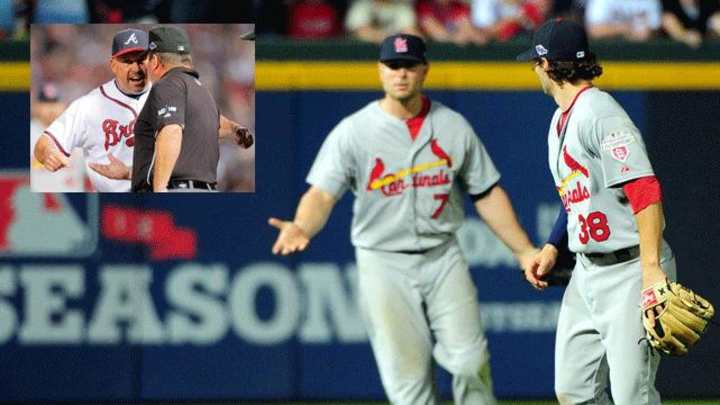
Infamous Blown Calls In Postseason
Sam Holbrook

With the Braves trailing 6-3 in the eighth inning of the 2012 NL Wild Card Game against the Cardinals, umpire Sam Holbrook signaled an infield fly ball after a Braves' popup dropped between Cardinals' shortstop Pete Kozma and left fielder Matt Holliday. Andrelton Simmons was called out instead of the Braves' having the bases loaded with only a single out. The game was temporarily delayed after Atlanta fans began pelting the field with bottles and trash while the umpires conferred. The Cardinals emerged victorious with a 6-3 victory that was played under protest.
Ron Kulpa
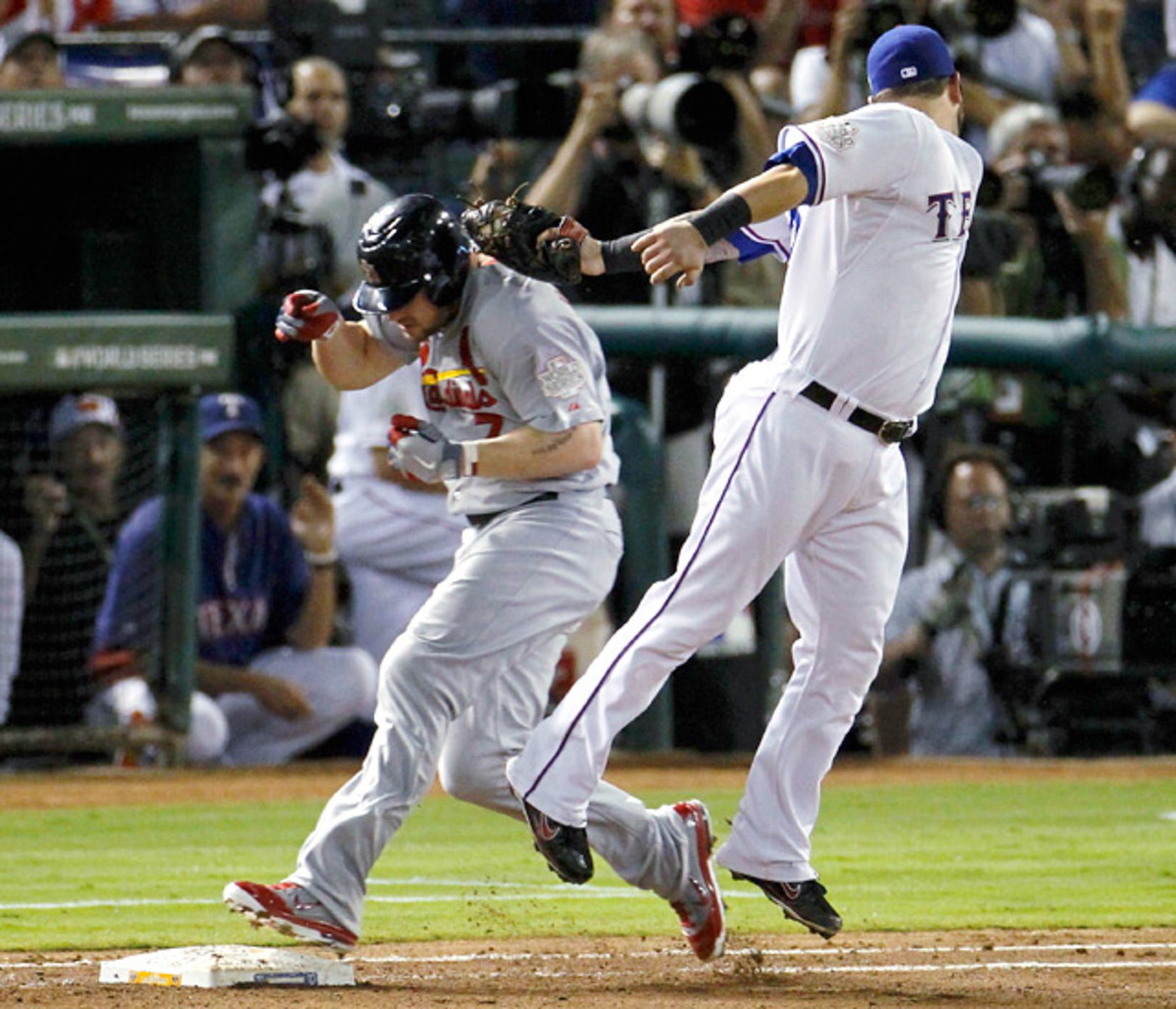
In the top of the fourth inning, Matt Holliday hit into an apparent 6-4-3 double play, but Elvis Andrus' throw from second pulled Mike Napoli off the bag. Replays clearly showed that Napoli tagged Holliday on the shoulder before he reached first, but Ron Kulpa's call stood. The Cardinals would go on to score four runs in the inning.
Hunter Wendelstedt
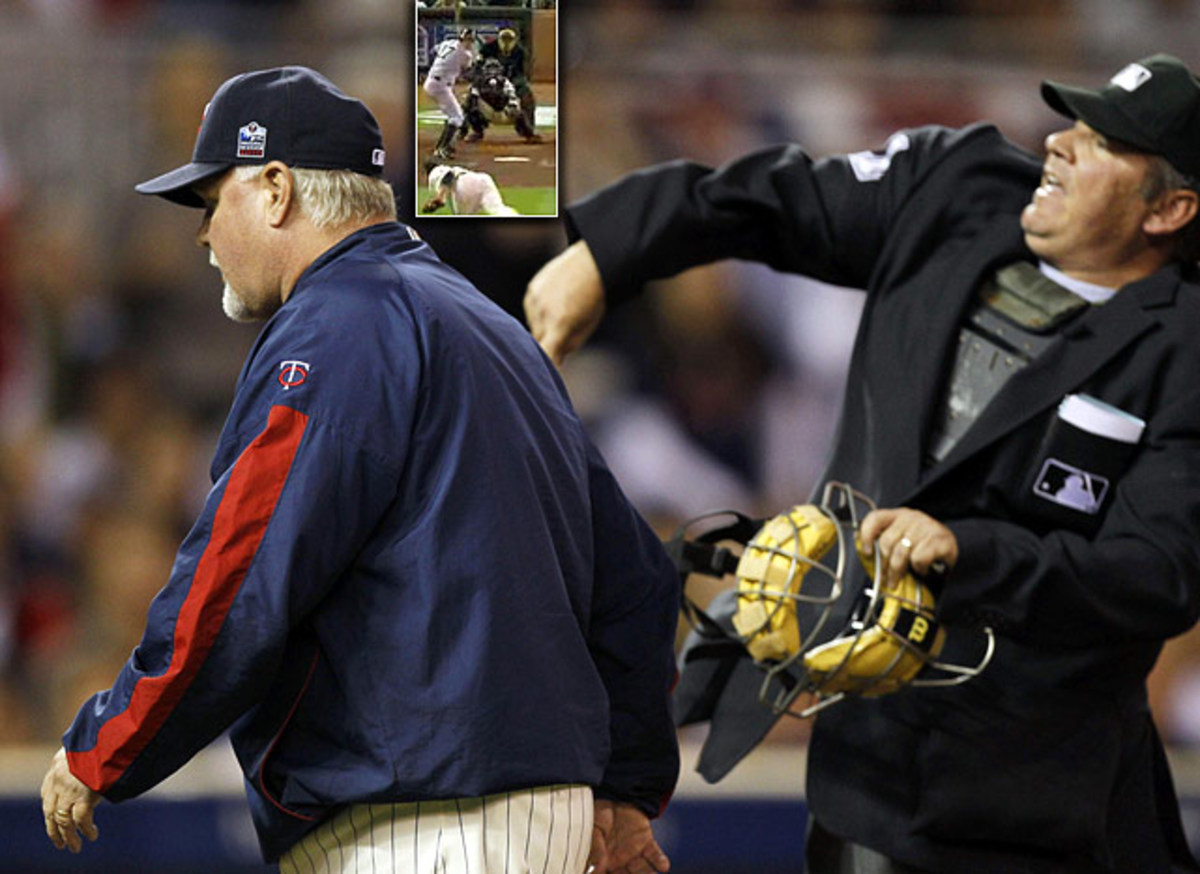
With the score even 2-2 in the top of the seventh inning, Twins pitcher Carl Pavano unleashed a cut fastball that seemed to catch the inside corner of the plate to strike out Lance Berkman. Home-plate umpire Hunter Wendelstedt didn't think so, however, ruling the pitch a ball to keep Berkman's at-bat alive. That would prove costly for the Twins, as Berkman drove Pavano's next pitch into the left-center field gap, plating Jorge Posada to give New York a 3-2 lead. The Yankees never would relinquish the advantage, going on to win 5-2.
Dana DeMuth
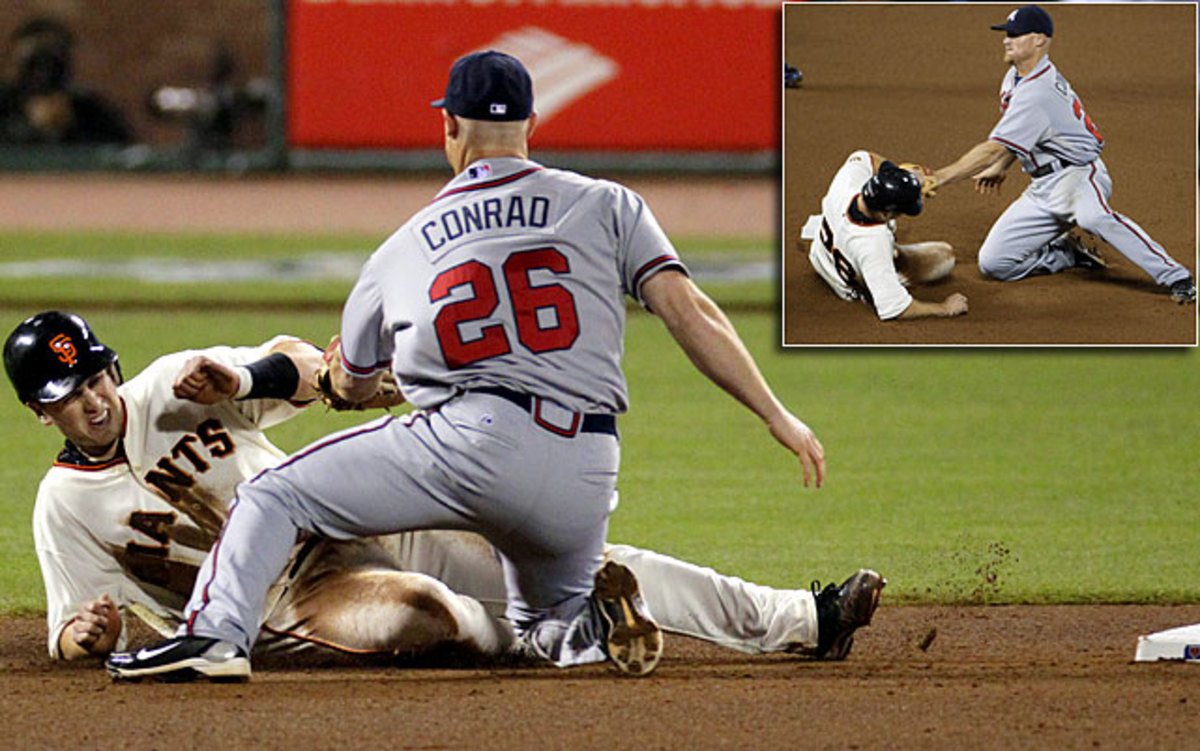
Buster Posey hadn't stolen a base all season for the Giants prior to his fourth-inning swipe of second during Game 1 of the NLDS. The problem was, it probably shouldn't have held up. Replays showed Braves second baseman Brooks Conrad's tag beat Posey by a fraction of a second, which would have cleared the bases with two outs. Posey later rounded scored on Cody Ross' RBI single. The controversial run was all San Francisco starter Tim Lincecum would need; he pitched a sparkling complete-game shutout to give the Giants a 1-0 win.
Mike Everitt
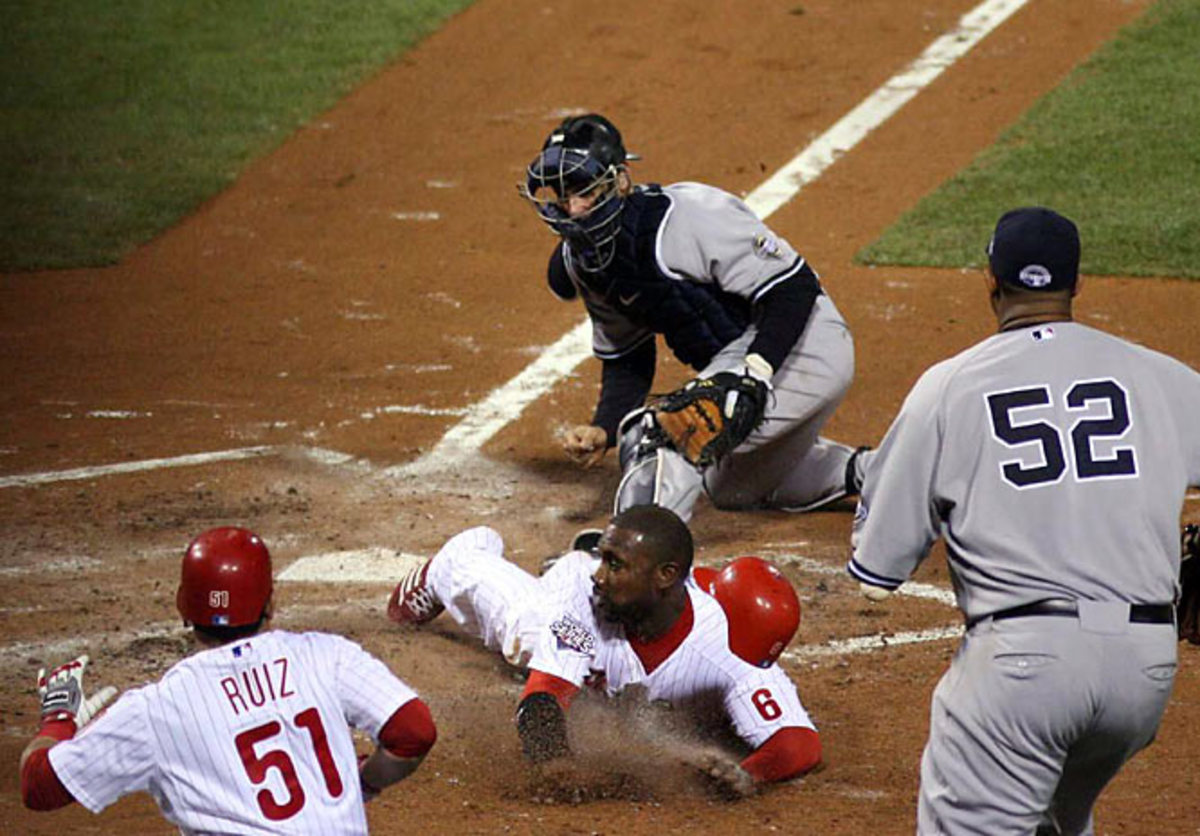
Against the Yankees in Game 4, the Phillies' Ryan Howard was called safe at home in the bottom of the fourth inning, tying the score at two, but he never touched the plate.
Doug Eddings
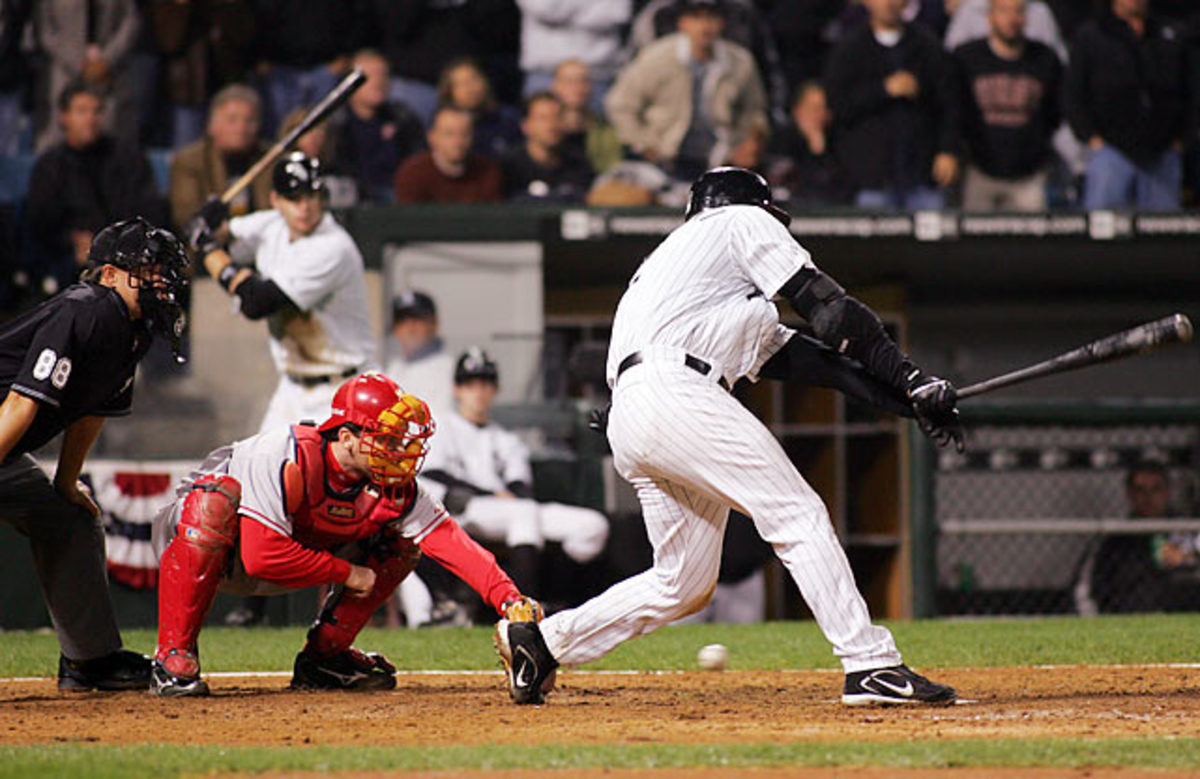
In Game 2 of the 2005 AL Championship Series between the Angels and White Sox, the score was tied 1-1 in the bottom of the ninth in Chicago. After White Sox catcher A.J. Pierzynski swung through strike three, he darted toward first base, as if there were a dropped third strike. Home plate umpire Doug Eddings made no signal of an out, despite what looked like a clear swing, miss and catch by Angels catcher Josh Paul. The call ended up costing the Angels the game, as pinch-runner Pablo Ozuna stole second before being knocked in by Chicago's Joe Crede. The White Sox went on to win the series.
Tim Tschida
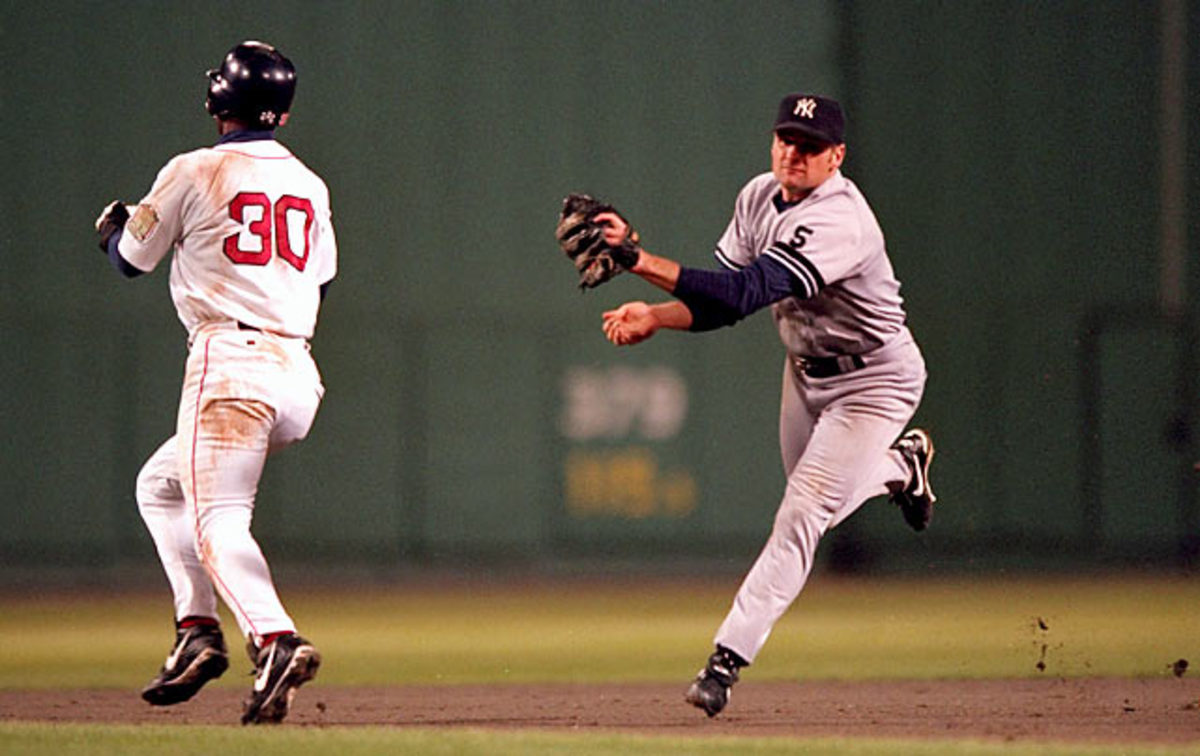
Known to Red Sox fans as "The Phantom Tag," umpire Tim Tschida blew a crucial call in the eighth inning of Game 4 of the 1999 ALCS. The Yankees led 3-2 in the bottom of the eighth but the Red Sox had a runner at first and one out when John Valentin hit a groundball to second. The Yankees' Chuck Knoblauch fielded the ball but completely whiffed on Boston baserunner Jose Offerman (who was heading to second) before throwing to first to get Valentin. This should have brought All-Star shortstop Nomar Garciaparra to the plate with a man in scoring position and two outs. Instead, Tschida called Offerman out, resulting in an inning-ending double play. The Yankees won the game to take a 3-games-to-1 series lead and finished off the Red Sox in Game 5.
Richie Garcia
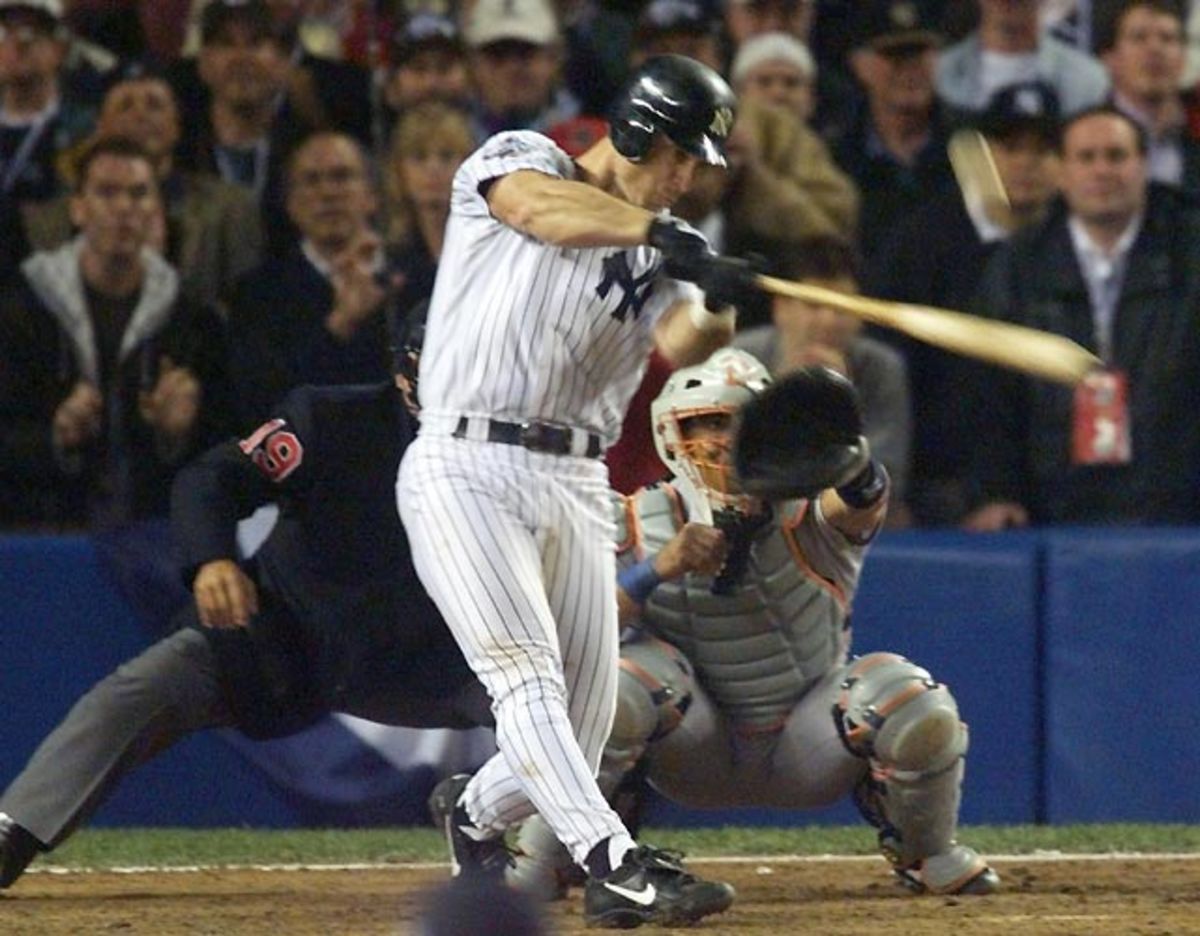
In the seventh inning of Game 1, Tino Martinez was at the plate with the score tied 5-5. With a 2-2 count, Martinez took a pitch that appeared to be a strike, but umpire Richie Garcia ruled it a ball. On the next pitch, Martinez hit a grand slam into the bleachers. The Yankees would go on to win the game 9-6 and sweep the Pads for the title.
Richie Garcia

With the Orioles leading the Yankees 4-3 in the bottom of the eighth inning of Game 1 of the 1996 ALCS at Yankee Stadium, Derek Jeter hit a long fly ball to right field. As O's right fielder Tony Tarasco settled under the ball on the warning track and reached to make the catch at the wall, a young Yankees fan named Jeffery Maier reached over the fence and grabbed the ball out of the air, just above Tarasco's reach. Baltimore cried for obvious fan interference, but right field umpire Rich Garcia ruled the play a home run, and the call was held up by the rest of the crew. The homer sent the game to extra innings, where the Yankees eventually won the game and eventually, the series.
Drew Coble
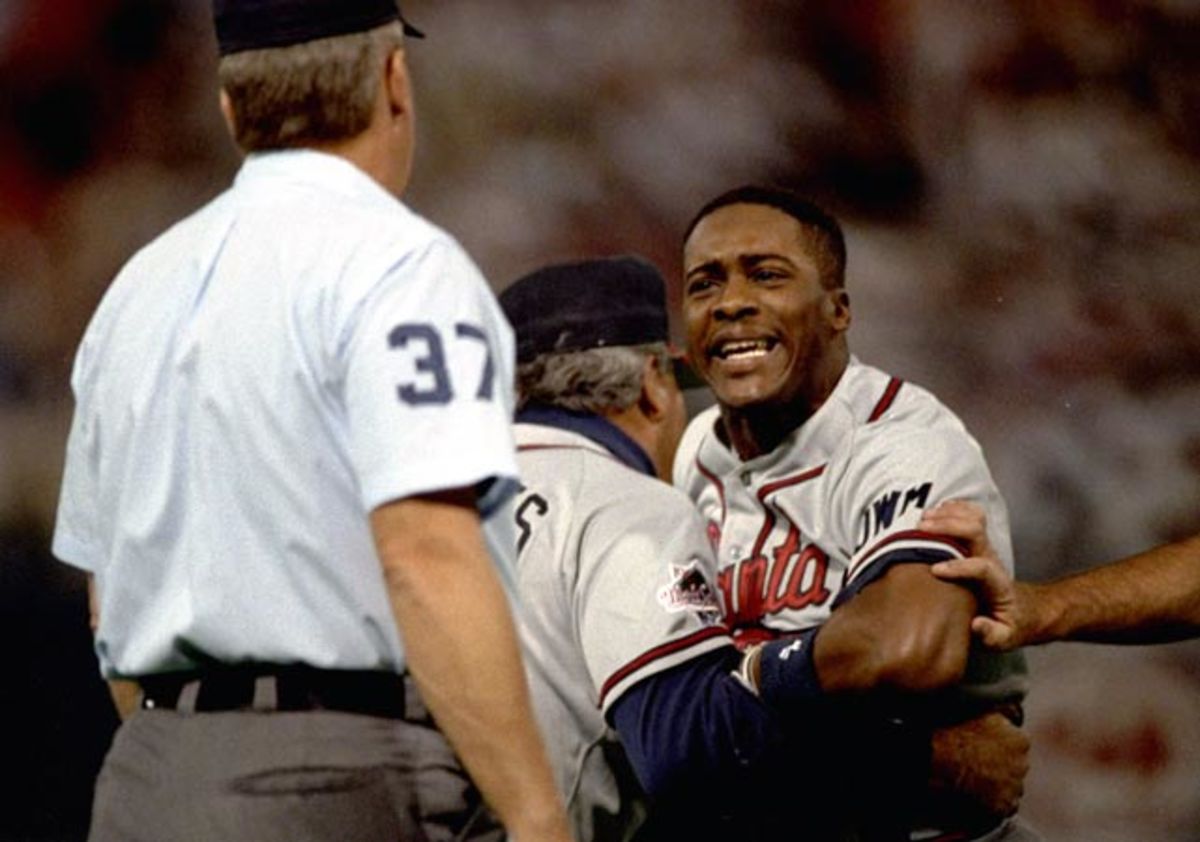
In Game 2 of the 1991 Series, Ron Gant came to the plate representing the tying run and knocked a single into the outfield. After rounding first, Gant stepped back onto the base as Twins first baseman Kent Hrbek got the ball. Hrbek then preceeded to push Gant off the base and tag him out. The umpire missed the shove, Gant was called out and the Braves lost their chance to score. Minnesota went on to win the World Series in seven games.
Don Denkinger
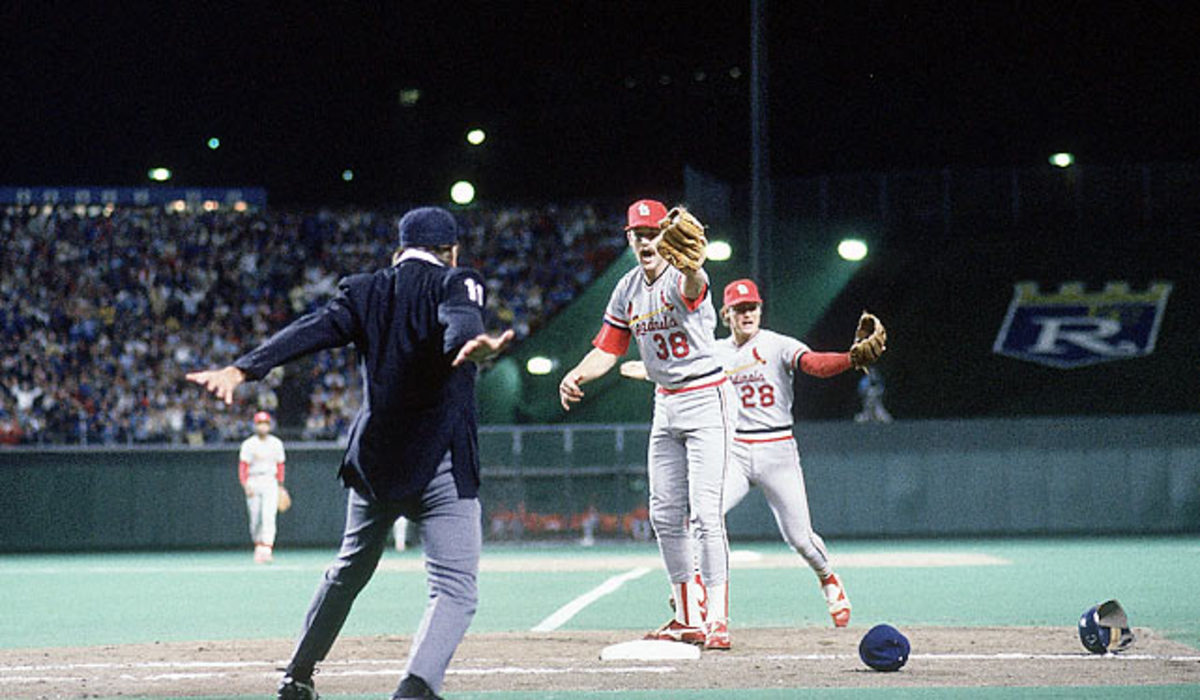
First base umpire Don Denkinger's ruling in Game 6 of the 1985 World Series is known simply as "The Call." With the Cardinals leading the Royals 3-2 in the series, St. Louis took a 1-0 advantage into the bottom of the ninth inning. Cardinals reliever Todd Worrell induced a slow roller to first base from the Royals' Jorge Orta leading off in the ninth, and an underhand toss from first baseman Jack Clark to Worrell, who was covering the bag, looked like a sure out. Denkinger called Orta safe, though replays clearly showed he was out. The dubious single ignited a two-run Royals rally that won the game. Kansas City rolled to an 11-0 win the next night in Game 7 to win its first World Series title.
Frank Pulli

In the sixth inning of Game 4, Reggie Jackson was on first and Thurman Munson was on second with no outs. Lou Pinella then hit a single into the outfield, but Jackson waited between second and first to see if the ball would be caught. When it wasn't, the Jackson raced to second and the Dodgers threw to the base to try and get the out. But instead of the ball reaching the base, it struck Jackson in thigh, allowing Munson to score from second and Mr. October to be safe. Following the game, much debate centered on whether Jackson purposefully got in the way or not.
Larry Barnett
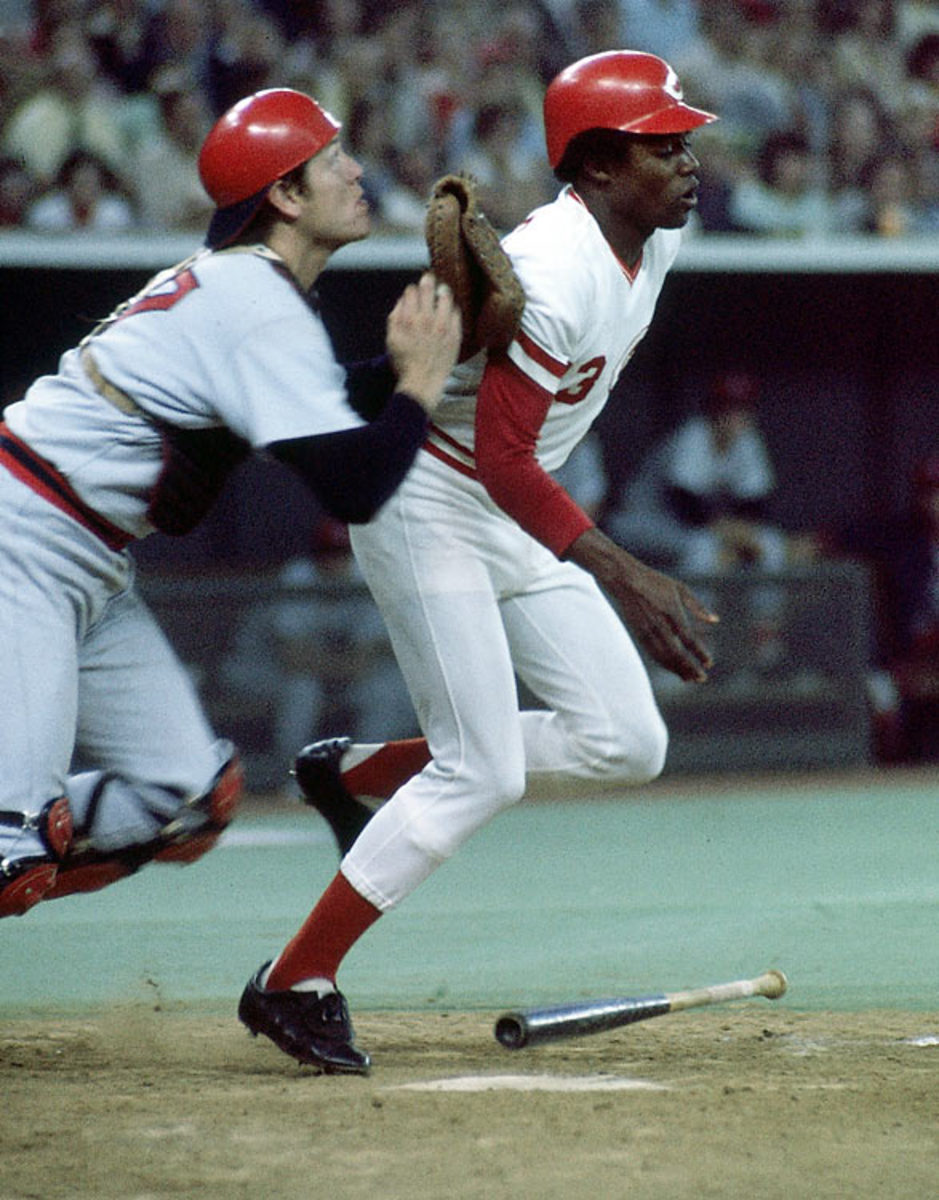
In the 1975 World Series between the Red Sox and Reds, Cincinnati's Ed Armbrister laid down a sacrifice bunt in a tie game with a runner on first in the bottom of the 10th inning. But as Sox catcher Carlton Fisk attempted to make a play on the ball and throw to second to get the lead runner, Armbrister lingered near home plate, causing a collision with Fisk and forcing an errant throw into center field. Home plate umpire Larry Barnett refused to call interference on Armbrister, despite the seemingly obvious attempt to block Fisk from making the play. The non-call eventually helped the Reds score the winning run. They took a 2-1 lead in the Series, which they won in seven games.
